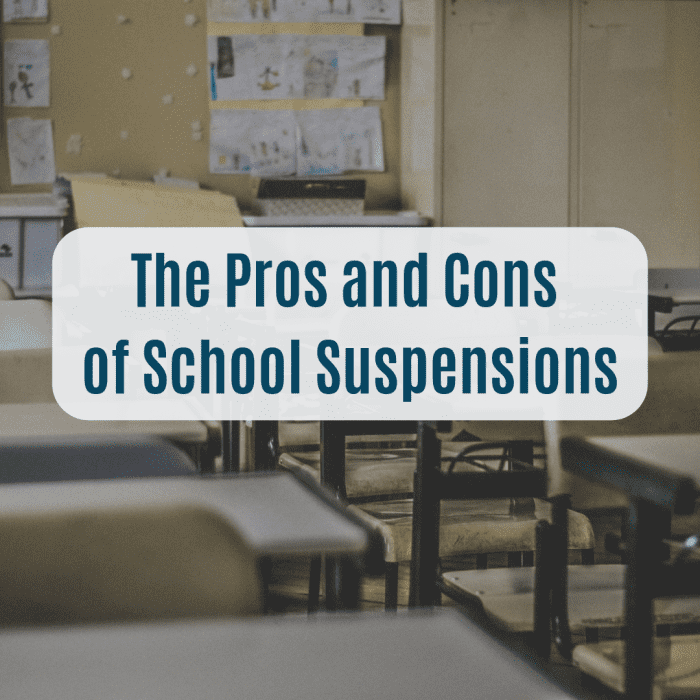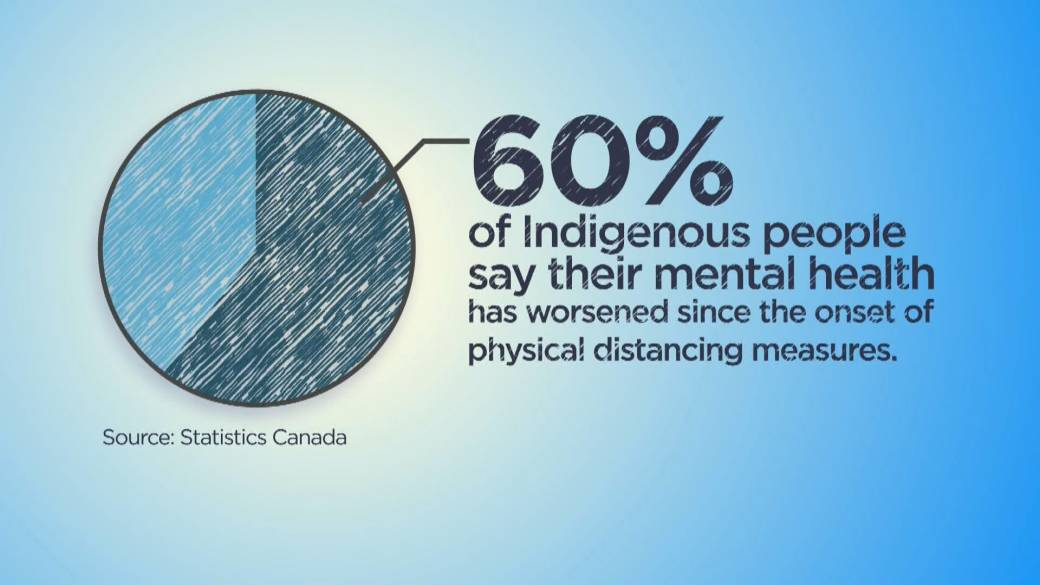Are School Suspensions Doing More Harm Than Good? A Comprehensive Look

Table of Contents
The Negative Impact of School Suspensions on Student Outcomes
School suspensions, while seemingly a straightforward disciplinary tool, often have far-reaching and detrimental effects on students' lives. The consequences extend beyond simply missing a few days of class; they create ripple effects that can significantly impact academic success, mental well-being, and future prospects.
Increased Risk of Academic Failure:
- Lower Grades and Higher Dropout Rates: Studies consistently show a strong correlation between school suspensions and lower academic achievement. Students who are suspended frequently fall behind their peers, struggle to catch up on missed coursework, and are at a significantly higher risk of dropping out of school. The disruption to their learning environment creates an insurmountable academic gap for many.
- Reduced Educational Attainment: The long-term consequences of frequent suspensions can be devastating. Research indicates a direct link between suspension and reduced educational attainment, limiting future opportunities for employment and higher education. This ultimately impacts their earning potential and overall quality of life.
- The Cycle of Suspension: Many students who experience suspensions find themselves in a vicious cycle, repeating the behavior that led to suspension due to underlying issues that aren't being addressed.
Mental Health Consequences:
Suspension is far more than just time away from school; it's a deeply isolating experience.
- Emotional Trauma and Isolation: The feeling of being removed from the school community, coupled with the stigma associated with suspension, can significantly impact a student's mental health. Feelings of shame, anger, and resentment are common, potentially exacerbating pre-existing mental health conditions or triggering new ones.
- Increased Risk of Depression and Anxiety: Studies have linked school suspensions to an increased risk of depression, anxiety, and other mental health issues among young people. The isolation and stigmatization experienced during suspension can significantly worsen these conditions.
- Alienation and Social Isolation: Being separated from friends and classmates can lead to feelings of alienation and social isolation, making it difficult for students to reintegrate into the school community upon their return.
Increased Likelihood of Future Delinquency:
The connection between school suspensions and future involvement in the juvenile justice system is well-documented.
- School-to-Prison Pipeline: Suspensions contribute significantly to the school-to-prison pipeline, a disturbing trend where students are pushed out of the education system and into the criminal justice system.
- Negative Peer Associations: Suspension often isolates students, leading them towards negative peer groups and potentially increasing their involvement in risky behaviors and criminal activity.
- Lack of Support Systems: Students who are suspended often lack the necessary support and resources to address the underlying issues that contributed to their misbehavior. This lack of support further increases their risk of future delinquency.
Alternatives to School Suspensions: Promoting Positive Discipline
Instead of relying solely on punitive measures like suspensions, schools can adopt more effective and humane approaches to discipline.
Restorative Justice Practices:
Restorative justice focuses on repairing harm and fostering reconciliation between the student, the victim (if any), and the school community.
- Mediation and Conflict Circles: These practices encourage open communication and collaborative problem-solving, helping students understand the consequences of their actions and take responsibility for their behavior.
- Improved School Climate: Restorative justice has been shown to create a more positive and supportive school climate, reducing the likelihood of future disciplinary issues.
- Focus on Repairing Harm: Unlike punitive measures, restorative justice prioritizes repairing the harm caused by misbehavior and fostering a sense of community responsibility.
Positive Behavioral Interventions and Supports (PBIS):
PBIS is a proactive approach to discipline that emphasizes teaching and reinforcing positive behaviors.
- Proactive Strategies: PBIS focuses on preventing behavioral problems before they arise by teaching students appropriate social skills and providing positive reinforcement for good behavior.
- Clear Expectations and Consistent Reinforcement: This framework establishes clear expectations for behavior and provides consistent reinforcement for meeting those expectations.
- Reduced Suspensions and Improved School Climate: Data consistently shows that schools implementing PBIS experience significant reductions in suspensions and improvements in school climate.
Social-Emotional Learning (SEL) Programs:
SEL programs help students develop their emotional intelligence and social skills, equipping them with the tools they need to manage their emotions, resolve conflicts peacefully, and make responsible choices.
- Emotional Regulation and Self-Awareness: SEL programs teach students how to regulate their emotions, understand their own feelings, and empathize with others.
- Conflict Resolution Skills: These programs equip students with the skills they need to resolve conflicts peacefully and constructively.
- Improved Behavior and Academic Performance: Research shows that SEL programs can lead to significant improvements in student behavior and academic performance.
The Limitations and Potential Biases of School Suspensions
School suspensions, even when implemented with seemingly good intentions, suffer from significant limitations and often perpetuate systemic inequalities.
Disproportionate Impact on Minority Students:
- Racial Bias in Discipline: Research consistently reveals that minority students, particularly African American and Latino students, are disproportionately suspended compared to their white peers, even when controlling for other factors. This points to the presence of implicit bias in disciplinary practices.
- Zero Tolerance Policies: These policies often exacerbate these disparities, leading to harsher punishments for minor infractions among minority students.
- Need for Equitable Approaches: Schools must actively address the underlying biases in their disciplinary practices and implement equitable approaches to ensure fairness for all students.
Lack of Effectiveness in Addressing Underlying Issues:
Suspensions rarely address the root causes of student misbehavior.
- Ignoring Underlying Issues: Suspensions simply remove students from the school environment without addressing the underlying issues that contributed to their misbehavior (e.g., learning disabilities, mental health challenges, trauma).
- Need for Individualized Support: Effective discipline requires individualized support and interventions tailored to the specific needs of each student.
- Punishment over Prevention: A "punishment-focused" approach to discipline is ultimately ineffective in addressing the root causes of misbehavior and fostering positive behavioral change.
Conclusion:
The evidence overwhelmingly suggests that school suspensions are a largely ineffective disciplinary tool that causes significant harm to students and undermines the school community's well-being. The negative impact on academic outcomes, mental health, and future prospects is substantial, particularly for minority students who are disproportionately affected. We must move beyond relying solely on school suspensions and embrace innovative, evidence-based strategies like restorative justice, PBIS, and SEL programs that promote positive behavior, improve student outcomes, and create safer, more inclusive school environments for all. Let's work together to replace the damaging cycle of school suspensions with proactive and equitable approaches to student discipline.

Featured Posts
-
 England Vs Spain On Tv Tonight Channel Kick Off Time And Streaming Details
May 02, 2025
England Vs Spain On Tv Tonight Channel Kick Off Time And Streaming Details
May 02, 2025 -
 500 Nhl Points Clayton Keller Makes Missouri Hockey Proud
May 02, 2025
500 Nhl Points Clayton Keller Makes Missouri Hockey Proud
May 02, 2025 -
 Urgent Action Needed A Global Perspective On Improving Youth Mental Health In Canada
May 02, 2025
Urgent Action Needed A Global Perspective On Improving Youth Mental Health In Canada
May 02, 2025 -
 Fortnite Data Mine Suggests Lara Crofts Quick Return
May 02, 2025
Fortnite Data Mine Suggests Lara Crofts Quick Return
May 02, 2025 -
 Tuerkiye De 1 Mayis Emek Ve Dayanisma Guenue Gecmisten Guenuemueze Bir Bakis
May 02, 2025
Tuerkiye De 1 Mayis Emek Ve Dayanisma Guenue Gecmisten Guenuemueze Bir Bakis
May 02, 2025
Latest Posts
-
 La Rencontre Poignante D Emmanuel Macron Avec Des Victimes De L Armee Israelienne
May 03, 2025
La Rencontre Poignante D Emmanuel Macron Avec Des Victimes De L Armee Israelienne
May 03, 2025 -
 Tensions Israelo Francaises Netanyahu Accuse Macron De Soutenir Un Etat Palestinien
May 03, 2025
Tensions Israelo Francaises Netanyahu Accuse Macron De Soutenir Un Etat Palestinien
May 03, 2025 -
 Macron Et L Etat Palestinien Netanyahu Denonce Une Grave Erreur
May 03, 2025
Macron Et L Etat Palestinien Netanyahu Denonce Une Grave Erreur
May 03, 2025 -
 Au Dela De La Douleur Emmanuel Macron Face A La Souffrance Des Victimes Israeliennes
May 03, 2025
Au Dela De La Douleur Emmanuel Macron Face A La Souffrance Des Victimes Israeliennes
May 03, 2025 -
 Netanyahu Critique Vivement La Position D Emmanuel Macron Sur L Etat Palestinien
May 03, 2025
Netanyahu Critique Vivement La Position D Emmanuel Macron Sur L Etat Palestinien
May 03, 2025
